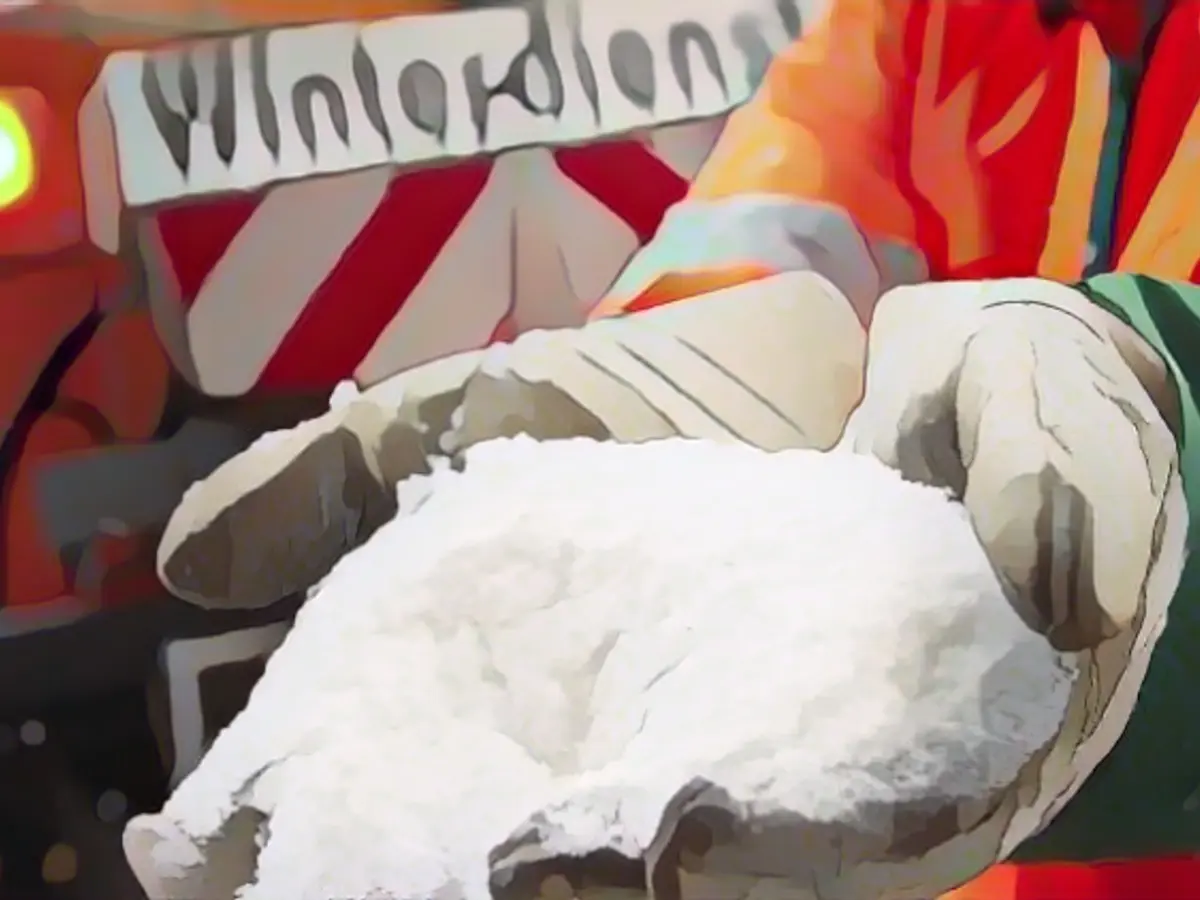Navigating Winter Salt Costs: A Homeowner's Guide
With the arrival of winter, cold air sweeps across Germany, bringing with it the potential for ice and snow. Whenever this happens, it's typically the responsibility of homeowners and tenants to clear and grit walkways. However, before you start applying road salt, it's essential to be mindful of the regulations.
Beware of the Fine Line Between Clearing Snow and Breaking the Law
During winter, your sidewalk duty involves removing snow, ice, and any slippery conditions. There are various means you can employ for this task, and until recently, salt was a popular choice. But be warned, in several cities and municipalities, the use of road salt is now illegal, and the consequences can add up to quite a hefty fine.
Those who disregard the salt ban are committing an administrative offense. The penalty can reach up to 10,000 euros, depending on the specific municipality. Before making any decisions, it's essential to verify the local regulations. Major cities that enact this ban include Berlin, Duisburg, Freiburg, Hamburg, Karlsruhe, Lübeck, Mainz, Munich, Schwerin, and Wiesbaden.
However, not all cities enforce this blanket ban. Smaller exceptions occasionally apply, such as allowing the salting of staircases or other critical areas. Neither is there a uniform regulation at a federal or state level.
Environmentally Friendly Alternatives for a Consientious Clearing
If you must grit your walkways, there are eco-friendly options available. You'll find that sand, gravel, and grit make fantastic tread-safe alternatives. Even clay or lava granules are on the list. Their primary advantage is that, after the next thaw, all these materials can be collected and reused.
Unlike these materials, salt is the only substance able to melt ice and snow. Alternatives like sand or grit are considered de-icing grit. However, they don't actually dissolve the snow; they reduce slipping risks, due to their rough surface. Just be sure to choose products with the "Blue Angel" eco-label, which signifies environmentally friendly products.
Understanding Salt's Effects on Nature
Spreading salt lowers the freezing point, essentially tricking the snow into temporarily melting, even in freezing temperatures. However, this comes with considerable side effects for the environment:
- The soil suffers from saltwater, decimating plant life, making nutrient and water absorption more challenging, and washing out essential nutrients.
- The fine roots of trees get affected, causing dying roots and lack of necessary nutrients.
- Buildings and walls also deteriorate due to salt exposure, leading to masonry decay.
- Vehicles are at risk of corrosion, and animals hate walking through the salty mess.
Taking Care of the Environment Without Sacrificing Safety
Although these drawbacks may seem disheartening, there are measures you can take to minimize their impact:
- Use a shovel to clear snow safely and effectively.
- If you need to salt critical areas, consider sand or grit instead.
- In areas with a salt ban, consult the local authority to determine the best alternatives.
By understanding the environmental impact of salt and employing alternative methods, you can help keep our environment and communities intact. Stay informed, stay safe, and stay green this winter!
Enrichment Insights
To find out which cities in Germany have prohibited the use of road salt for gritting sidewalks and to explore environmentally friendly alternatives, follow these tips:
- Visit your local municipalities' websites to check if they have policies on salt usage.
- Look for guidelines from environmental organizations, such as Greenpeace.
- Investigate eco-friendly gritting agents labeled with the "Blue Angel" eco-label.
- Explore the use of alternative materials, such as grit, granulate, or sand.
- Research local initiatives focusing on preserving walkways without using salt or other harmful materials.








